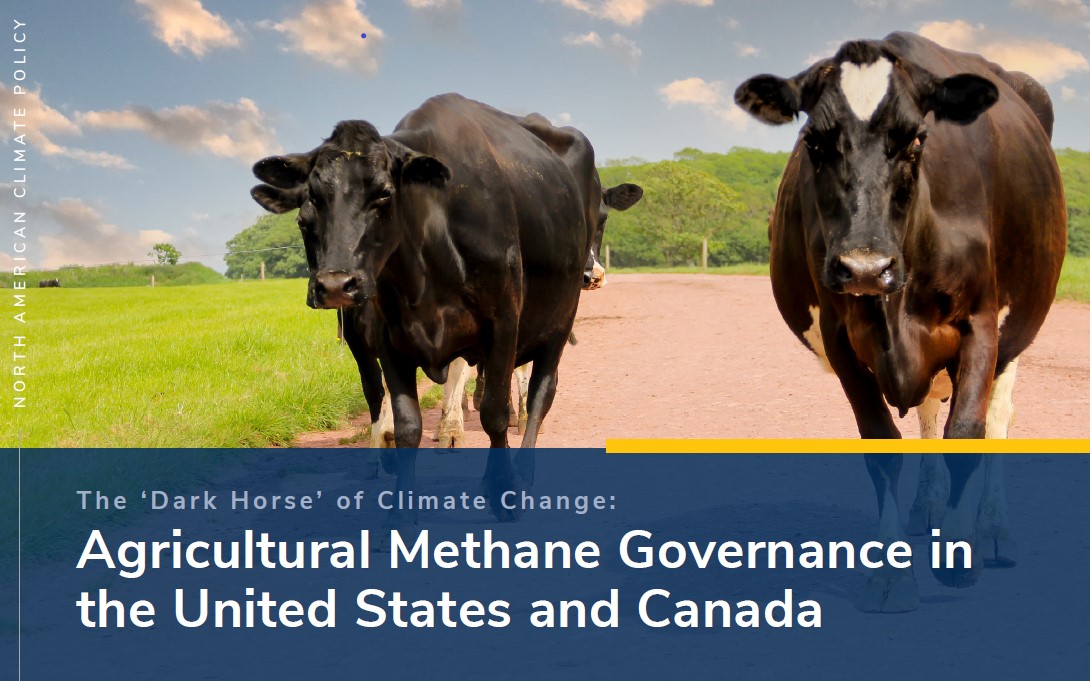This paper is part of the North American Colloquium (NAC), a collaborative venture between the Autonomous National University of Mexico, University of Toronto, and University of Michigan. Established in 2018, the NAC brings together leading academic analysts and practitioners from Mexico, Canada and the United States to address key social and policy issues facing all three countries. Each year, the three partner universities select a theme, and one serves as the host to convene joint activities throughout the year.
The 'dark horse' of climate change: Agricultural methane governance in the United States and Canada
Methane emissions took the spotlight at the 2021 United Nations Climate Change Conference of Parties (COP26) in Glasgow, Scotland. In the run-up to COP26, the United States (US) and European Union (EU) announced the Global Methane Pledge, a voluntary commitment to reduce global methane emissions by at least 30 percent below 2020 levels by 2030. To date, 111 countries, representing roughly 70 percent of the global economy and nearly half of global anthropogenic methane emissions, have signed on.

Key findings
- The US and Canada are falling behind peer countries (including some European countries and New Zealand) in terms of agricultural methane mitigation policy.
- Neither country is considering mandatory agricultural emissions reductions, cuts in livestock production, or inclusion of agriculture in any form of greenhouse gas pricing scheme.
- Supply-side, technically-oriented policy solutions to livestock methane emissions will, in the near term, be unable to achieve any significant emissions reduction.
- Neither the US nor Canada is considering policy approaches that even approximate the types of comprehensive changes to the food system that will be necessary to avert catastrophic climate scenarios.